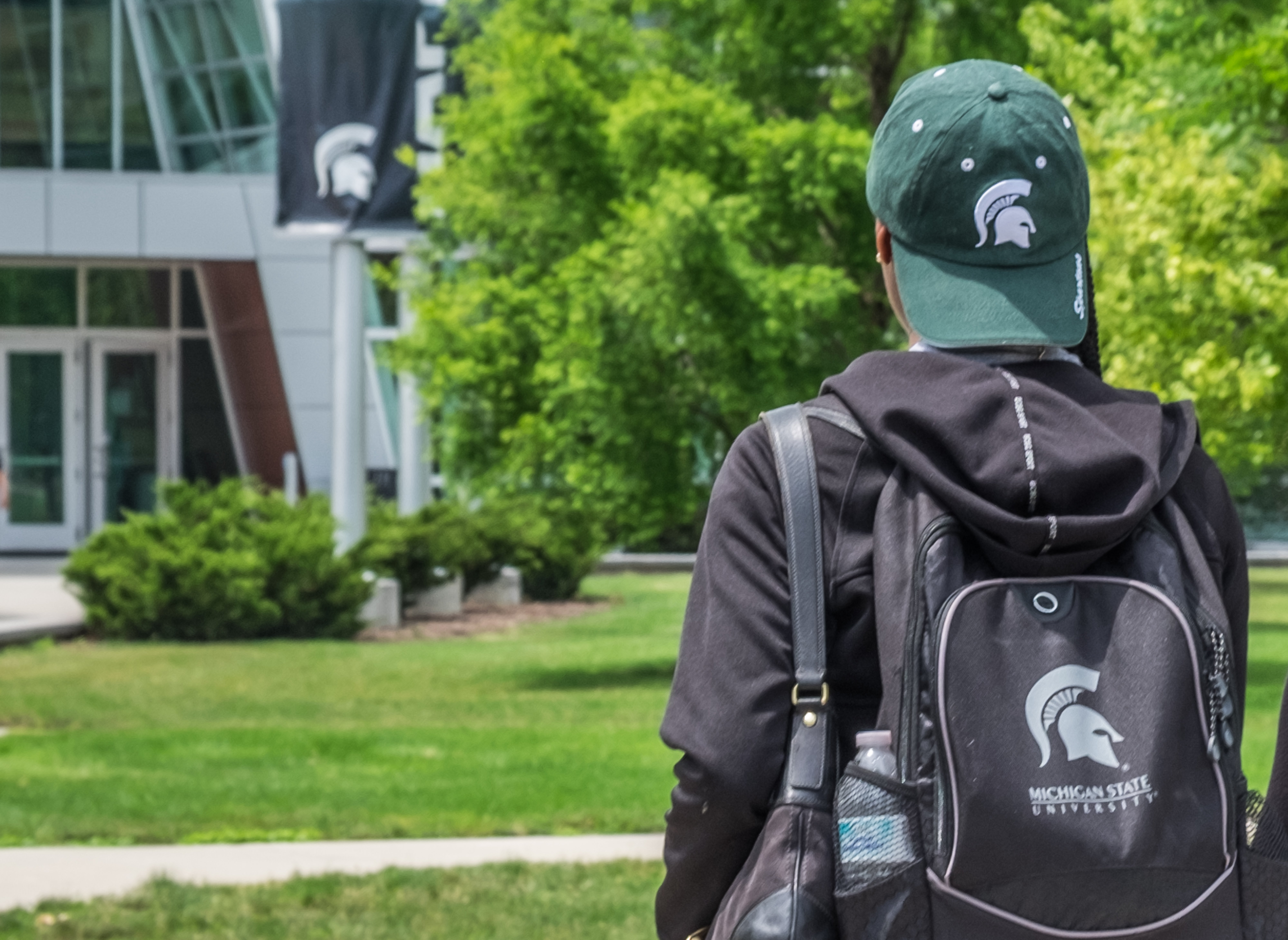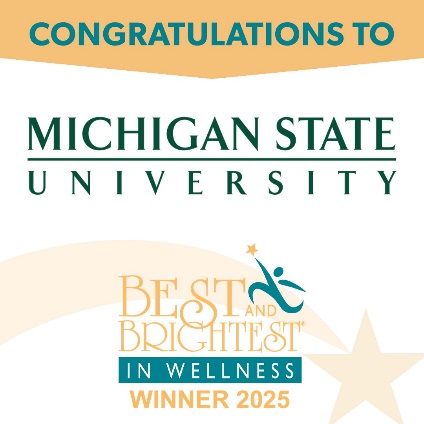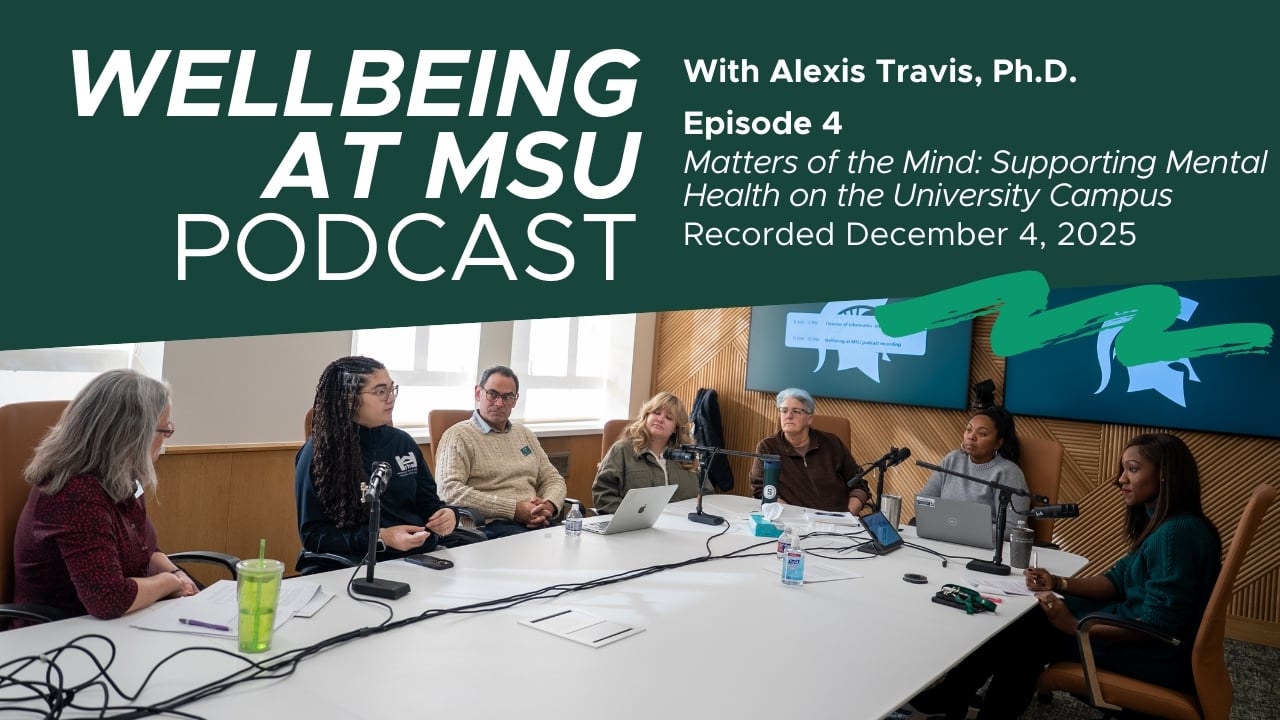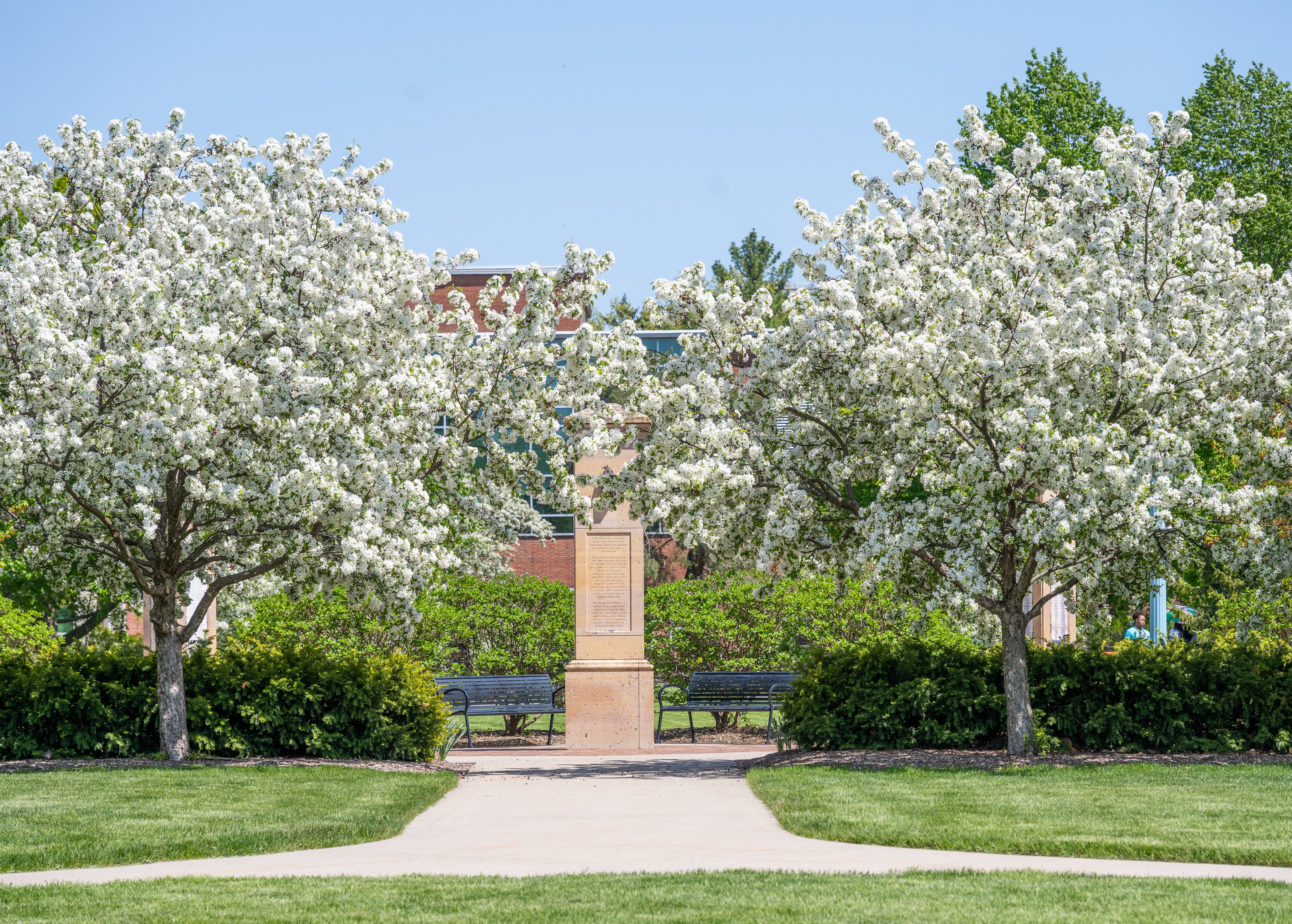Crisis Resources
- 24/7 MSU Counseling and Psychiatric Services (CAPS) Crisis Counseling: 517-355-8270, Press 1
- 24/7 Employee Assistance Program: 517-355-4506
MSU Recognized as One of Michigan’s Best and Brightest in Wellness
The National Association for Business Resources has named MSU one of the winners of Michigan’s Best and Brightest in Wellness awards, recognizing innovative programs, comprehensive benefits, and a commitment to wellbeing.
Wellbeing At MSU Podcast
Episode 4
Matters of the Mind: Supporting Mental Health on the University Campus
Health and Wellbeing Services Cost List
This document outlines our service offerings, who they’re for, and associated costs to help you find the support that fits your needs.
Nurturing Your Health and Wellbeing Spring 2026
View Events FlyerKeep Up with the Latest Health and Wellbeing Initiatives
Stay connected with University Health and Wellbeing:
- Subscribe to our Wellbeing at MSU newsletter
- Join a UHW listserv
- Follow us on Instagram, Facebook, LinkedIn, X, and YouTube





